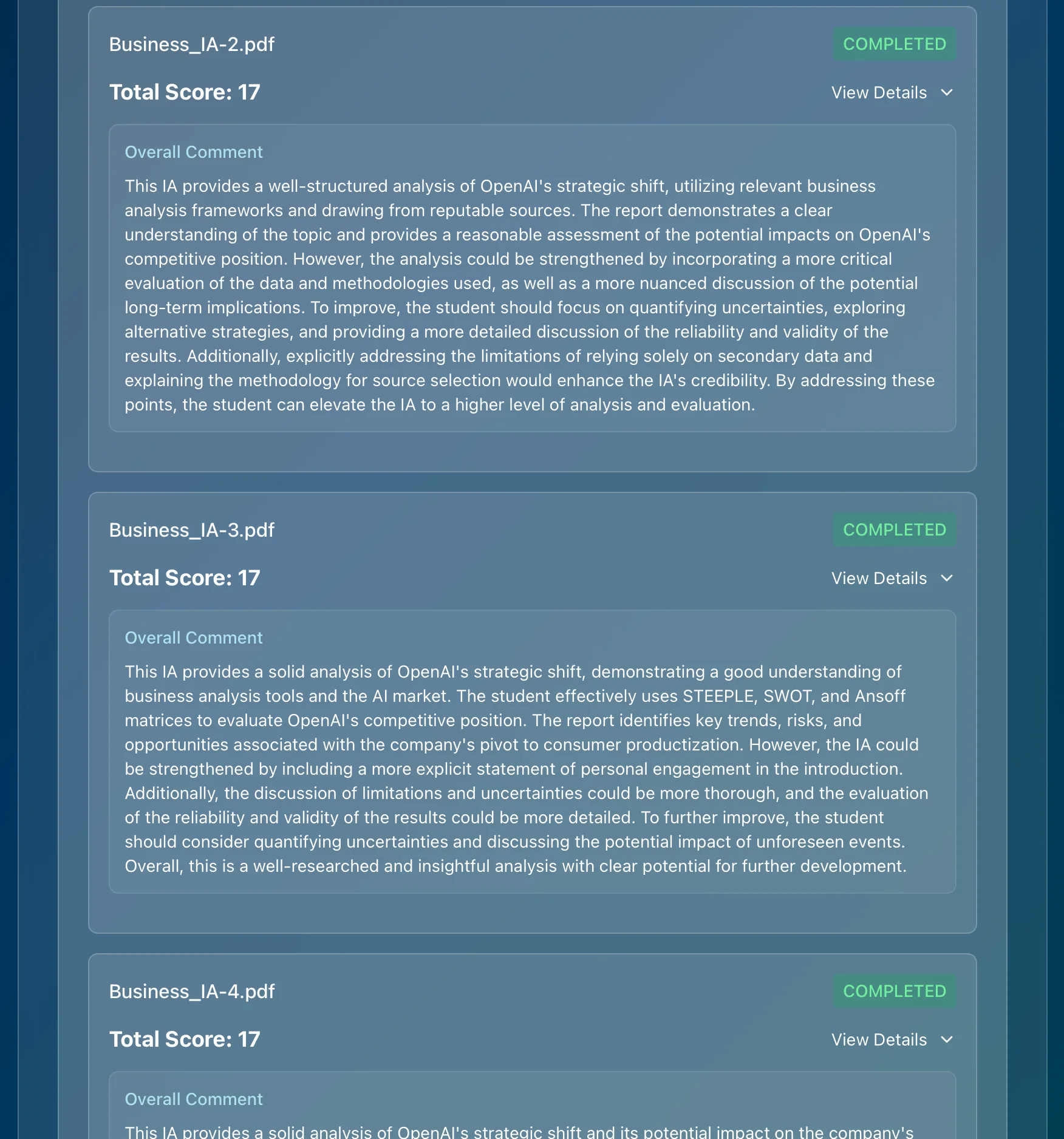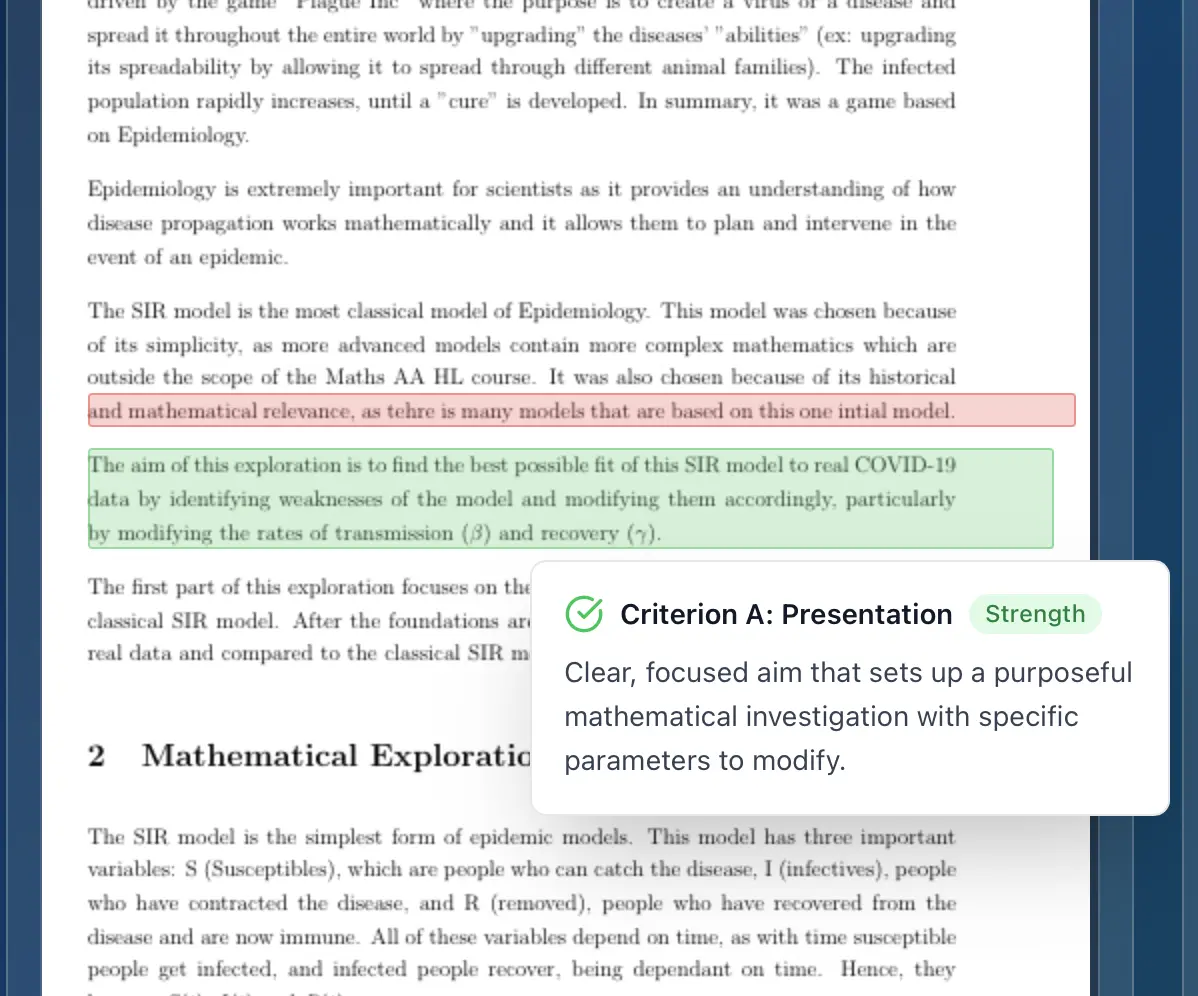How IB Credits Transfer to Universities Worldwide
Navigating the world of university admissions can be daunting, especially when you're an International Baccalaureate (IB) student. A key question on everyone's mind is: how do my IB credits actually transfer to universities worldwide? The short answer is, it varies significantly depending on the university, country, and your IB scores. However, understanding the general principles and doing your research can significantly increase your chances of receiving credit and potentially shortening your degree program. This guide will walk you through everything you need to know about IB credit transfer, from understanding university policies to maximizing your IB performance. We'll cover common challenges, advanced strategies, and even touch on how AI is revolutionizing IB assessment.
Introduction: Unlocking Your University Potential with IB Credits
The International Baccalaureate (IB) Diploma Programme is a globally recognized pre-university course known for its rigorous academic standards and holistic approach to education. One of the biggest advantages of earning an IB diploma is the potential to receive university credit, allowing you to skip introductory courses and potentially graduate earlier. However, the process of transferring IB credits can be complex and varies widely between institutions. This guide aims to demystify the process, providing you with the information and strategies you need to maximize the value of your IB diploma. We’ll explore how different universities and countries approach IB credit transfer, offering practical advice and real-world examples to help you navigate this crucial aspect of your academic journey. Whether you're a student, teacher, or parent, this guide will equip you with the knowledge to make informed decisions about your future.
Struggling with IB Assessments?
Get instant, detailed feedback on your work with AI that understands IB criteria.

Understanding IB Credit Transfer Policies
The first step in understanding how IB credits transfer is to research the specific policies of the universities you're interested in. Here's a breakdown of what to look for:
University-Specific Policies
Each university has its own unique policy regarding IB credit transfer. These policies are usually found on the university's website, typically under the "Admissions" or "International Students" section. Look for keywords like "IB Credit," "Advanced Placement," or "Prior Learning Assessment."
- Example: The University of Michigan states that students with scores of 6 or 7 on Higher Level (HL) IB exams may receive college credit. The specific courses that can be waived vary by department.
Country-Specific Guidelines
Different countries have different approaches to recognizing the IB diploma.
- United States: Many US universities offer credit for HL subjects with scores of 5, 6, or 7. Some may also grant credit for Standard Level (SL) subjects, though this is less common.
- United Kingdom: UK universities often use IB points as part of their entry requirements. While they may not explicitly grant credit, a strong IB score can significantly strengthen your application.
- Canada: Canadian universities generally grant credit for HL subjects with scores of 5 or higher. The specific courses that can be waived depend on the university and the subject.
- Australia: Similar to the UK, Australian universities often use IB points as part of their entry requirements. Credit transfer policies vary.
- Europe: Policies vary widely across European countries. Some countries, like the Netherlands, have a well-established system for recognizing IB diplomas, while others may require additional qualifications.
Subject-Specific Considerations
The subject you studied in the IB can also affect credit transfer. STEM subjects (Science, Technology, Engineering, and Mathematics) often have more straightforward credit transfer policies compared to humanities or arts subjects.
- Example: A student who scores a 7 in IB HL Physics may be able to skip the introductory physics course at many universities.
Maximizing Your IB Performance for Credit Transfer
While understanding university policies is crucial, your IB performance is the most important factor in determining whether you receive credit. Here are some tips to maximize your IB scores:
Choose HL Subjects Strategically
Carefully consider which subjects to take at the Higher Level. Choose subjects that align with your intended major and that you are genuinely interested in. This will increase your motivation and improve your chances of achieving high scores.
- Tip: Research which HL subjects are most likely to receive credit at your target universities.
Develop Strong Study Habits
The IB Diploma Programme is demanding, so it's essential to develop strong study habits early on. This includes:
- Time Management: Create a study schedule and stick to it.
- Active Learning: Engage actively with the material through note-taking, summarizing, and practice questions.
- Seeking Help: Don't hesitate to ask your teachers for help when you're struggling.
Master Exam Techniques
Understanding the structure and requirements of IB exams is crucial for success. Practice past papers, familiarize yourself with the marking schemes, and seek feedback on your work.
- Example: For the IB English Literature exam, practice analyzing texts using the key concepts and literary devices emphasized in the syllabus.
Internal Assessments (IAs) Matter
Your Internal Assessments (IAs) contribute significantly to your final IB grade. Take them seriously and put in the effort to produce high-quality work.
- Tip: Start working on your IAs early and seek feedback from your teachers throughout the process.
Common Challenges and Mistakes in IB Credit Transfer
Despite your best efforts, you may encounter challenges when trying to transfer IB credits. Here are some common mistakes to avoid:
Lack of Research
Failing to research university-specific policies is a common mistake. Don't assume that all universities treat IB credits the same way.
- Solution: Visit the websites of your target universities and carefully review their IB credit transfer policies. Contact the admissions office if you have any questions.
Misunderstanding HL vs. SL Credit
Many students are unaware that universities typically only grant credit for HL subjects.
- Solution: Focus your efforts on achieving high scores in your HL subjects.
Insufficient Scores
Even if a university offers credit for IB subjects, you may need to achieve a certain minimum score to qualify.
- Solution: Aim for scores of 6 or 7 in your HL subjects to maximize your chances of receiving credit.
Missing Deadlines
Universities often have deadlines for submitting IB scores for credit transfer.
- Solution: Keep track of these deadlines and submit your scores well in advance.
Pro Tip: Get AI-Powered Grading
Stop second-guessing your grades. Get instant feedback aligned with official IB rubrics.

Advanced Tips and Strategies for IB Credit Transfer
For students aiming to maximize their IB credit transfer potential, here are some advanced strategies:
Consider Dual Enrollment
Some students choose to take college courses while still in high school. This can provide a head start on college credit and demonstrate your academic readiness to universities.
Participate in Summer Programs
Attending summer programs at universities can provide valuable insights into college-level coursework and potentially earn you college credit.
Build Relationships with University Admissions Officers
Attend university information sessions and college fairs to meet admissions officers and ask questions about IB credit transfer policies.
Advocate for Your Credits
If you believe you deserve credit for a particular IB subject but haven't received it, don't be afraid to advocate for yourself. Provide evidence of your coursework and explain why you believe it meets the university's standards.
Technology and Modern Assessment: The Role of AI in IB Success
The landscape of education is constantly evolving, and technology is playing an increasingly important role in IB assessment. AI-powered tools are transforming how students learn and how teachers provide feedback.
For example, Marksy is an AI grading assistant specifically designed for the International Baccalaureate. It helps teachers provide instant, accurate, and detailed feedback on student work based on official IB rubrics. This ensures that students receive consistent and fair assessments, aligned with the IB's rigorous standards.
Marksy's key features include:
- Rubric-aligned scoring: Ensures that all assessments are based on the official IB criteria.
- Detailed criterion-by-criterion feedback: Provides students with specific insights into their strengths and weaknesses.
- Suggestions for improvement: Offers actionable advice on how students can improve their work.
By using AI tools like Marksy, teachers can save time and focus on providing personalized support to their students. Students, in turn, receive more detailed and consistent feedback, helping them to understand exactly how to improve their work and maximize their IB scores. This can ultimately lead to better credit transfer outcomes and a smoother transition to university.
The use of AI in IB assessment also promotes fairness and transparency. By relying on official IB criteria, AI tools help to eliminate bias and ensure that all students are assessed according to the same standards. This is particularly important in a global context, where students from diverse backgrounds are pursuing the IB Diploma Programme.
Conclusion: Your Path to University Success Starts Now
Transferring IB credits to universities worldwide can be a complex process, but with the right information and strategies, you can maximize the value of your IB diploma. Remember to research university-specific policies, focus on achieving high scores in your HL subjects, and avoid common mistakes. By developing strong study habits, mastering exam techniques, and leveraging the power of technology, you can increase your chances of receiving credit and shortening your degree program.
The International Baccalaureate is a challenging but rewarding program that can open doors to universities around the world. By taking a proactive approach to credit transfer, you can ensure that your hard work pays off and that you're well-prepared for your future academic endeavors.
Ready to take your IB performance to the next level? Try Marksy for free today and experience the power of AI-driven feedback. See how it can help you understand exactly how to improve your work and achieve your academic goals! Sign up for a free trial now and unlock your full potential!